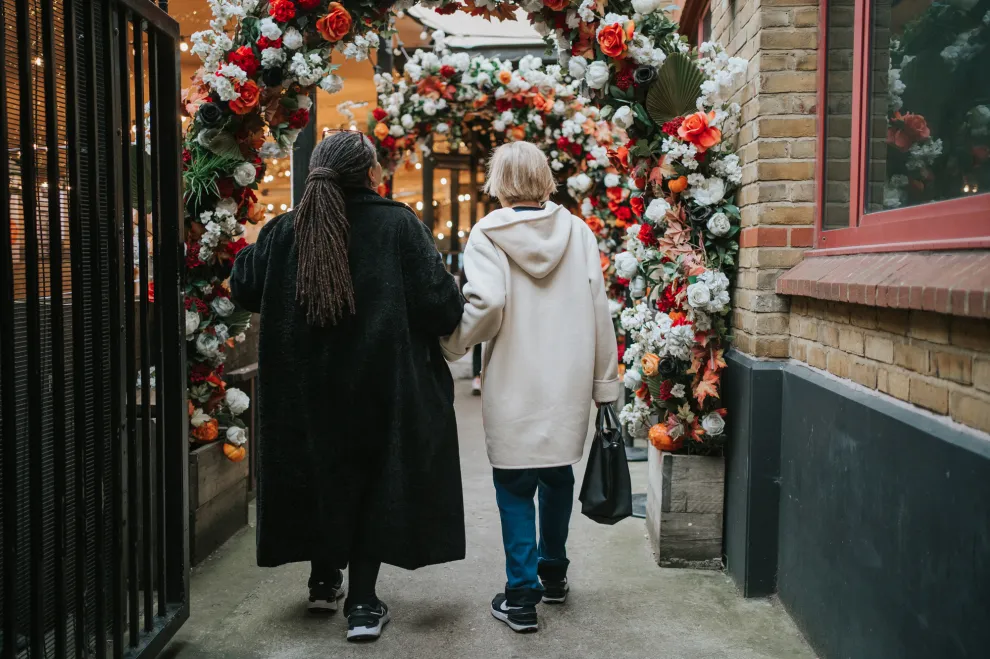Izabela Klaczkiewicz, Registered General Manager at Loveday Abbey Road shared an insight with the Independent about the increased risk of falls that winter poses for older adults.
Icy or slippery pavements, wet surfaces and the shorter, darker days can all contribute to accidents. Additionally, cold temperatures can cause muscles to become stiffer, making movement more difficult, while bulky winter clothing might throw off balance. For older people and those with mobility issues, these seasonal challenges pose a higher risk as they are already more vulnerable to falls.
Why are older adults more prone to falling?
As we age, muscle strength and balance naturally decline, making falls more likely. Conditions such as arthritis can make moving painful and challenging, while eyesight often worsens, making it harder to detect obstacles. Some medications commonly prescribed to older adults can also cause dizziness or affect coordination. These factors, combined with slippery winter conditions, mean maintaining balance becomes increasingly difficult.
The consequences of a serious fall in older adults?
Falls can lead to severe injuries like fractured hips or wrists, significantly reducing a person’s mobility. This loss of movement can result in muscle weakness and joint stiffness due to reduced activity. A fall can also dent confidence, creating a fear of falling again, which might lead to social isolation and a decrease in quality of life. In more serious cases, the consequences of a fall can include long-term health complications and a loss of independence.
Increased risk of falls for people living with dementia
For people living with dementia, the risk of falls can be particularly dangerous. Cognitive impairments can make it harder for them to recognise hazards or remember to use mobility aids, increasing the likelihood of accidents. Dementia can also affect spatial awareness, balance, coordination and depth perception, making everyday movements more challenging. Additionally, those living with dementia might have difficulty communicating discomfort or pain after a fall, potentially leading to untreated injuries. A fall can also have a significant psychological impact, triggering confusion, anxiety, or increased agitation, which may further affect their overall wellbeing and confidence in moving around safely.
Practical tips to prevent falls this winter
Choose appropriate footwear
Sturdy, well-fitting shoes with a good grip are essential. Winter boots with insulated linings can provide warmth while offering support. Opt for footwear with a firm heel and cushioned sole and avoid heels, flip-flops, or open-toed sandals, which offer less stability.
Exercise to improve balance and strength
Incorporating regular balance exercises, such as heel-to-toe walking, leg lifts and seated marches, can improve stability and coordination, helping to reduce the risk of falls. Gentle flexibility exercises for the ankles, hips, and shoulders keep joints supple, supporting better movement. Additionally, light resistance training for the legs and core strengthens the muscles needed for balance.
Make the home a safer space
- Lighting: Proper lighting helps prevent accidents, especially in areas with shadows or dim corners. Use bright LED bulbs in critical spaces and install night lights in bedrooms, hallways, and bathrooms to provide guidance during the night.
- Motion-sensor Lights: Install motion-activated lights in stairways or entrances that illuminate as someone approaches, minimising the risk of tripping in the dark.
- Fix Hazardous Flooring: Repair frayed carpets, loose tiles, or uneven floorboards promptly. Consider securing rugs with non-slip backings or heavy-duty double-sided tape to prevent slips.
- Remove Clutter: Keep pathways clear of unnecessary items, furniture, or decorations that might cause trips. Ensure cables and cords are neatly secured against walls.
- Install Safety Aids: Fit grab rails in essential areas like bathrooms and consider using a shower seat and a hand-held shower head for ease of use. A raised toilet seat can also make standing up safer and more manageable.
- Apply Non-Slip Solutions: Use non-slip strips on both indoor and outdoor stairs. Place non-slip mats in high-risk areas such as the kitchen, bathroom and entranceways to guard against slipping on wet or shiny surfaces.
- Arrange Furniture Thoughtfully: Organise furniture to ensure easy movement around the home, avoiding tight spaces. Steer clear of low chairs or sofas, as rising from them can be difficult for older individuals.
Read the full article here.




